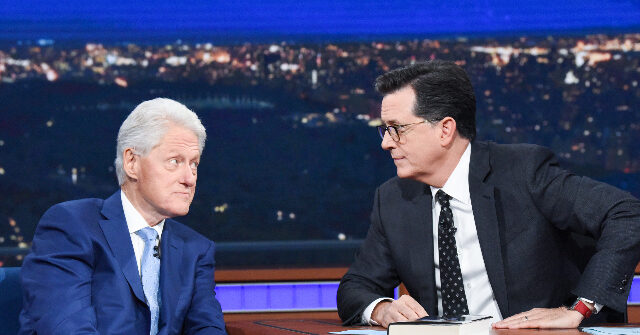Former President Bill Clinton recently made a controversial claim regarding President-elect Donald Trump during an appearance on CBS’ The Late Show With Stephen Colbert. Clinton asserted that Trump had told his Christian supporters, whom he referred to as “Christian nationalists,” that if they helped him return to the White House, he would rig future elections. According to Clinton, Trump made this comment during a radio interview, urging this voter base to turn out for the election, with the implication that they would not need to vote again if he was victorious. This assertion has sparked significant discussion and debate within political circles.
The assertion made by Clinton has been labeled as false, with no credible evidence to support the claim that Trump has ever suggested or stated he would rig future elections. In fact, Clinton appears to have misinterpreted or conflated different statements made by Trump. The comments in question seem to have originated from a speech Trump delivered in July at the Turning Point Action’s Believers’ Summit in Florida, wherein he addressed concerns surrounding voter fraud. In that speech, Trump encouraged his Christian supporters to vote, promising that in four years, they would not have to worry about voting anymore, as he would implement measures to enhance voter integrity. Critics have argued that statements taken from this context have been manipulated to suggest a hidden agenda of election rigging.
The misunderstanding intensified as various media outlets, particularly those leaning to the left, began to echo Clinton’s claims, amplifying the narrative that Trump was planning to undermine the electoral process. This led to a widespread belief on social media and in traditional media outlets that Trump was indeed making a concerted effort to rig future elections. Notably, when Clinton made these assertions during his television appearance, host Stephen Colbert did not challenge or contest them, signifying a lack of critical discourse surrounding the claim.
Moreover, during the same appearance, Clinton positioned the Democratic Party as upholders of the democratic process and orderly political transitions, conveniently omitting his wife’s involvement in the Russia collusion narrative that aimed to undermine the legitimacy of the 2016 presidential election. Hillary Clinton had labeled Trump as an “illegitimate president” in a previous interview, implying that the election outcome was tainted. However, subsequent investigations, including the Durham report, ultimately cleared Trump of collusion allegations, suggesting that those who propagated such claims faced no accountability for their actions.
This lack of accountability has drawn scrutiny, particularly when examining the contrasting perspectives surrounding the integrity of elections in the United States. While Trump has frequently criticized alleged voter fraud, emphasizing the need for reforms like voter ID laws, Clinton’s narrative seems to suggest a more profound concern about undermining election integrity. The discussions around these topics reveal a stark divide in the political landscape, as both parties leverage issues of legitimacy and voter participation to bolster their own narratives.
In conclusion, the discourse surrounding Trump’s alleged plans to rig future elections reflects underlying tensions between competing political ideologies. Clinton’s comments on The Late Show serve as a reminder of the often polarizing nature of election-related discussions in contemporary American politics. While claims and counterclaims circulate in the public sphere, it is crucial for both politicians and the media to provide a balanced perspective, ensuring that public discourse is grounded in factual and accurate representations of events and statements.

